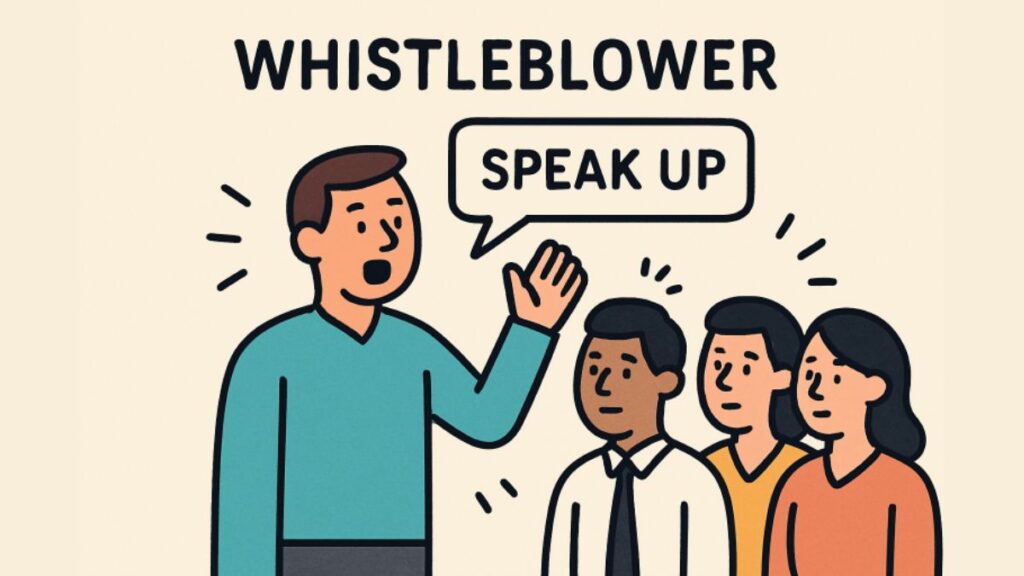The Role of Whistleblowers in Workplace Safety
Whistleblowers play an essential role as the eyes and ears within organizations, bravely exposing workplace hazards or violations that may otherwise go unaddressed. Whether it’s unsafe machinery, unethical business practices, or financial fraud, their willingness to speak out can spark necessary changes and even save lives. Employees who step forward with valid concerns protect their colleagues and uphold the values of integrity and public trust. A whistleblower attorney can assist employees in understanding their rights and navigating the complex process of reporting misconduct, offering crucial guidance and protection during a risky process.
For example, workers in many industries – from healthcare to manufacturing – have brought attention to hidden dangers, like toxic exposure or safety violations, prompting regulatory investigations and workplace reforms. High-profile cases have demonstrated that anonymous tip-offs can lead to sweeping policy changes that benefit employees, customers, and communities.
Trust is vital; employees need to know management will take their concerns seriously. Providing confidential reporting avenues encourages proactive hazard identification before issues escalate into crises or injuries.
Legal Protections for Whistleblowers
Recognizing the potential risks whistleblowers face, legal protections at the federal and state levels are designed to shield them from retaliation—including termination, demotion, or harassment. The Whistleblower Protection Act of 1989 serves as a foundation for safeguarding federal employees who disclose workplace misconduct, while the Occupational Safety and Health Administration (OSHA) enforces a range of statutes to protect private sector and government employees.
These protections are necessary because fear of reprisal can discourage individuals from reporting legitimate issues. By legislating against punitive actions, governments help create a climate where speaking out is valued rather than penalized. For organizations, adhering to whistleblower laws is not just about legal compliance—it’s about embracing the ethical imperative to protect those prioritizing collective safety over corporate silence. Additional legal guidance and summaries can be found in reputable resources like OSHA’s Whistleblower Protection Program.
Benefits of Encouraging Whistleblowing
Organizations reap substantial benefits from fostering a supportive climate for whistleblowing. Employers gain early insights into potential hazards and legal vulnerabilities when workers feel empowered and safe to report wrongdoing. This helps prevent accidents and regulatory penalties, protects the company’s reputation, and enhances public trust.
Internal reporting mechanisms enable companies to address issues discretely and efficiently, reducing the chance that problems will escalate into costly lawsuits or public scandals. Proactively resolving these issues often results in safer, healthier work environments and better employee morale—a competitive advantage in today’s labor market.
Effective whistleblower programs can also uncover inefficiencies or corruption that harm business performance. According to Forbes, companies committed to ethical practices and transparency are more likely to attract investors and customers who value accountability.
Creating a Supportive Reporting Environment
Developing a safe and supportive environment for whistleblowers requires action on several fronts. Organizations should create clear, accessible reporting policies and assurances of confidentiality for those coming forward. Anonymous hotlines, internal ethics committees, and anti-retaliation policies are vital elements of a robust reporting framework.
- Implement detailed reporting procedures that are accessible to all employees.
- Safeguard the anonymity and privacy of whistleblowers at every stage.
- Provide regular training on recognizing hazards and understanding whistleblower rights.
Leadership must model an open-door policy, signaling that all concerns will be treated respectfully and investigated thoroughly. Ongoing communication and follow-up reinforce that the company values safety and transparency.
Real-Life Impact of Whistleblower Actions
Whistleblower interventions have resulted in tangible safety improvements and averted serious harm. One potent example is the anonymous whistleblower who brought attention to the Nirav Modi-PNB banking scandal 2018, helping authorities limit financial losses and setting a precedent for greater oversight in the financial sector. Such cases demonstrate the far-reaching effects of whistleblowing, showing how it can prevent widespread damage and shape industry practices for the better. More examples and analyses can be found in major news organizations like BBC News.
Challenges Faced by Whistleblowers
Despite the presence of legal safeguards, whistleblowers can face significant hurdles. Social isolation, career roadblocks, and emotional stress often follow attempts to speak out, even within organizations committed to doing the right thing. The fear of improper handling of reports or lack of follow-up can deter others from coming forward.
Supporting Whistleblowers Beyond Legal Protections
Organizations must go beyond policy and law to truly encourage a culture of openness and accountability. Providing emotional support, counseling, and public acknowledgment of those who champion safety are key practices for ensuring employees know they will not be left to navigate the process alone.
Ultimately, the willingness to report issues is a barometer for organizational health. Companies prioritizing protection and psychological safety for whistleblowers are more resilient and effective in the long run.
Conclusion
Whistleblowers are vital in promoting integrity, accountability, and safety within organizations. By courageously exposing unethical or illegal behavior, they help prevent misconduct that could harm employees, customers, or the company’s reputation. To truly empower them, organizations must establish clear reporting channels, enforce strong legal protections, and cultivate a culture that values honesty over silence. Providing anonymity, emotional support, and assurance against retaliation encourages individuals to speak up without fear. When companies actively address these barriers, they reduce operational and legal risks and foster a more transparent, ethical, and productive workplace where trust and responsibility thrive.






